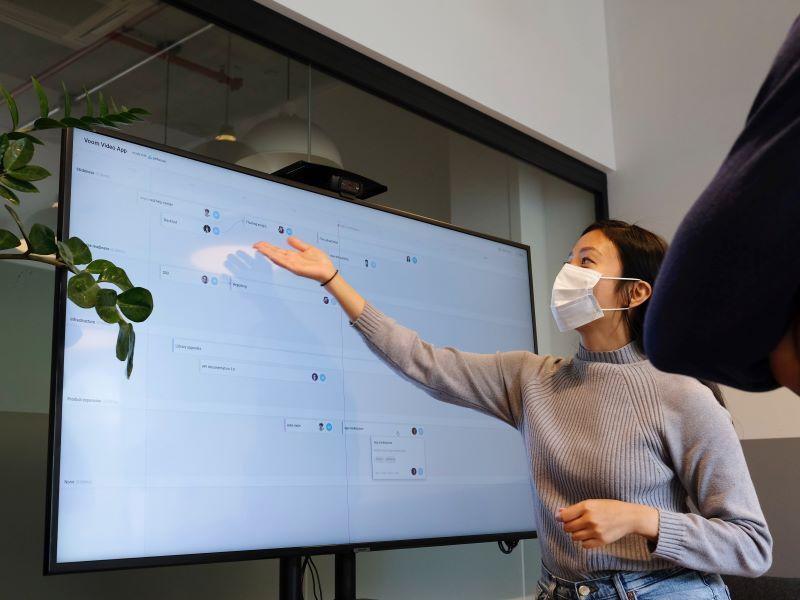Many workplaces are taking advantage of the benefits of AI, so why shouldn’t students? In fact, many students are. A Higher Education Policy Institute survey of more than 1,000 UK undergraduates found that 53 per cent were using AI to generate material for work they would be marked on. One in four is using applications, such as Google Gemini or ChatGPT, to suggest topics, and one in eight is using them to create content.
Of course, this leads to the question: if students are using AI for assessments, are they truly demonstrating what they have learned? Will they still be assets to the jobs market post-graduation? There are many concerns about using generative AI such as ChatGPT, but none as pressing as plagiarism and the lack of students retaining the knowledge needed to pass the course.
- In an artificially intelligent age, frame higher education around a new kind of thinking
- How to partner with AI and improve the learning experience
- AI can help fix student evaluations
But we are seeing more and more businesses embracing such technology to support their growth, so students should be taught to apply the same software they’ll need to use in their careers. The rise of generative AI will demand an entirely different skill set for workers in the future. To better assess and prepare our students, we need to look at where AI falls short and prioritise helping students to grow their confidence in those skills.
For instance, we are well aware of the lack of emotional intelligence and the missing “human touch” in AI’s work. It’s important we retain a person’s input. ChatGPT may be trained enough to pass complicated exams, for example, but it struggles to assess the complexities of the human mind. This will naturally affect the legal system and the analyses of complicated legal cases. From this, we know that, when it comes to assessments, we need to ensure that students possess the human skills – such as critical thinking, communication skills, people management and problem-solving – to flourish in the workplace post-graduation.
How do you know your AI-friendly assessment is fit for purpose?
Most education taxonomies identify three primary groups of aptitudes: (1) abilities and skills, (2) attitudes and values and (3) knowledge and information. The World Economic Forum’s (WEF) White Paper: Defining Education 4.0: A Taxonomy for the Future of Learning specifies that new technologies have changed the way in which people interact with raw information. As a result, there should be less direct emphasis on knowledge and information and more focus on skills and abilities.
When reinventing assessments, I would apply the following steps to ensure student learning will still be measured effectively.
Are you being industry-first?
Employers are often best placed to take the lead on the global skills agenda. The majority of students apply to university to better prepare themselves for their careers of choice. To meet student needs, universities need to ensure that courses are in line with current industry demands. I’d always recommend getting industry experts to teach, but if hiring is too difficult make sure your course material and assignments tap into current industry changes, news and developments. This first step will help with the following.
Focus on solving industry problems
A fundamental premise of the WEF’s white paper is that an abstract aptitude, such as problem-solving, should not simply be taught on its own in practice.
Instead, it should be taught through developing a particular competency, such as solving a specific real-world challenge or problem. At Arden University, for example, we offer a range of practical assignments by assessing our students on their ability to navigate real-life challenges. Our business students are asked to create business models and are assessed on how well their models withstand operation, supply chain and productivity issues. These practical assessments allow us to prepare our students for their careers post-graduation, giving them workplace-ready skills.
Test knowledge first, then skills
It’s still important to test knowledge acquisition, but we must then measure whether students can apply that knowledge by asking them to complete skill-first tasks. This will help those teaching courses to identify gaps in learning first, before asking students to apply knowledge in projects such as the one mentioned above. You can test knowledge in class quizzes, debates or presentations – it doesn’t have to be conducted via a written assignment. If AI can regurgitate information already, we shouldn’t be asking our students to do the same.
Teachers were once afraid of letting students use calculators for exams, but they ended up allowing students to solve more complicated questions. The same applies here. AI may create the spaces for our students to demonstrate their approach to more complicated, nuanced and human matters. This is why educational institutions should ask themselves if their approach to assessment is a true reflection of what their students are truly capable of.
For those at university that want to stay in academia for a career, or on courses that require essays and written assignments, universities should look at asking more pertinent questions. AI will only create what is already known. Ask students questions that will prompt them to share their opinions or their thought processes. Think about how teachers at school ask maths students to “show their working out” to prove they know the theoretical knowledge to solve an equation as opposed to relying on calculators. How can you apply that same principle to written assignments?
And while in-person examinations will remain a key part of assessing students’ knowledge and understanding for some degrees, universities must not replace written assignments with invigilated exams to overcome the challenges AI presents. Extensive research shows that invigilated exams are not conducive to meaningful or inclusive assessment, so the development of AI tools should push us to consider different types of examination.
Dilshad Sheikh is provost at Arden University.
If you would like advice and insight from academics and university staff delivered direct to your inbox each week, sign up for the Campus newsletter.




comment